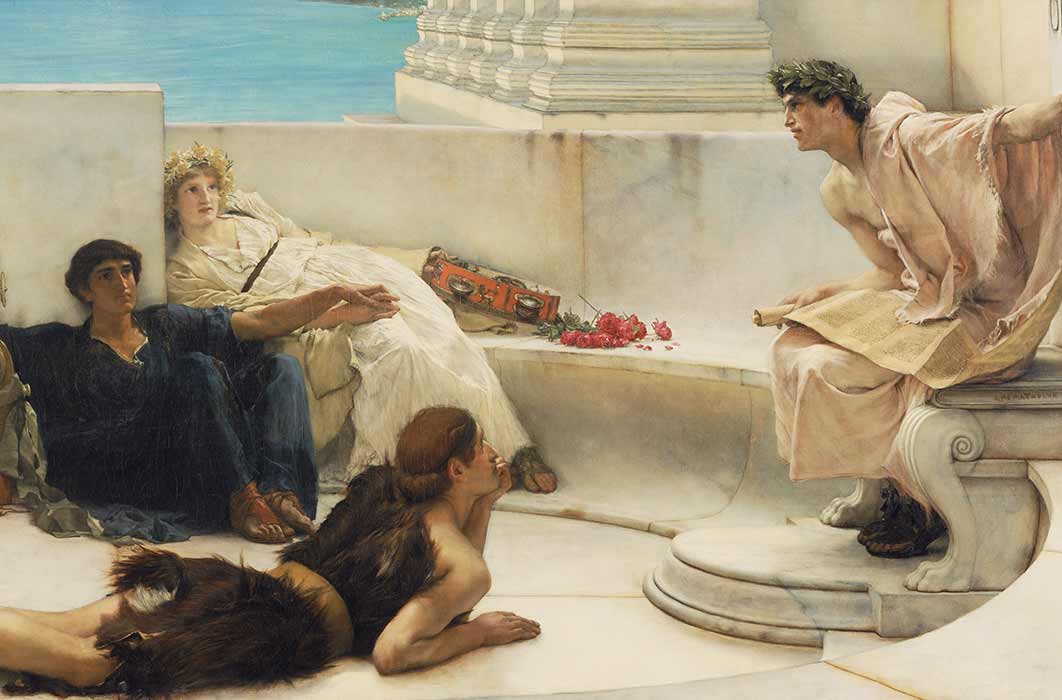
Bards, Historians And Historiographers Of Ancient Greece
Greece, a modern country found in Southeastern Europe, has for more than a thousand years presented the world with famous battles, fine art, wine, poetry, gods, and tales that at times bewilder the mind. But none of this could have happened had it not been developed by men of various backgrounds and experiences. Men like Homer, Hesiod, Herodotus and Thucydides, wrote the history of Greece as it is known today. These men of poetry and prose brought more to the discussion than just dreary stories.
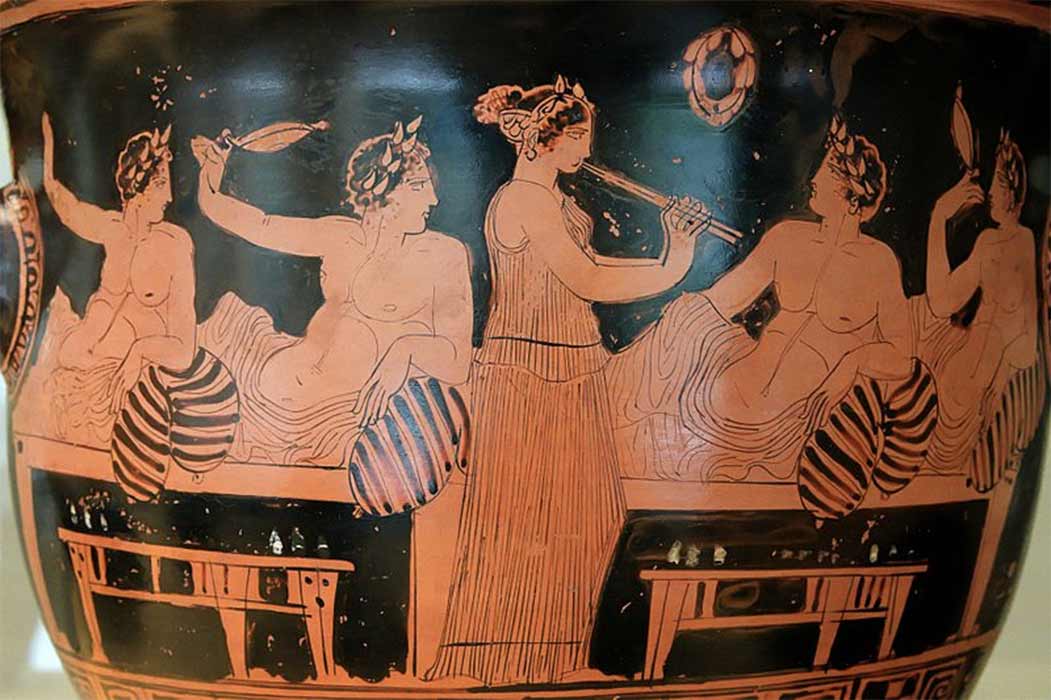
Symposium scene: banqueters playing the kottabos game while a girl plays the aulos. National Archaeological Museum (CC BY-SA 2.5)
What is often overlooked, and upon closer inspection, is the struggle between men and gods. Ideas were fraught with complications. To break free from the supernatural and embrace the natural elements that surrounded them and to orientate their cognition to "rational thinking" was a struggle to say the least. The Greek historians were able to present to the people of their times, and the people of today, a vast array of thought, whether it be their history, religion, political turmoil, making contact with a foreign nation for the first time, or even going to war. The ancient Greeks who wrote, the reasons they wrote, and how each stood on the shoulders of the previous, to see what they saw, deserve modern recognition.
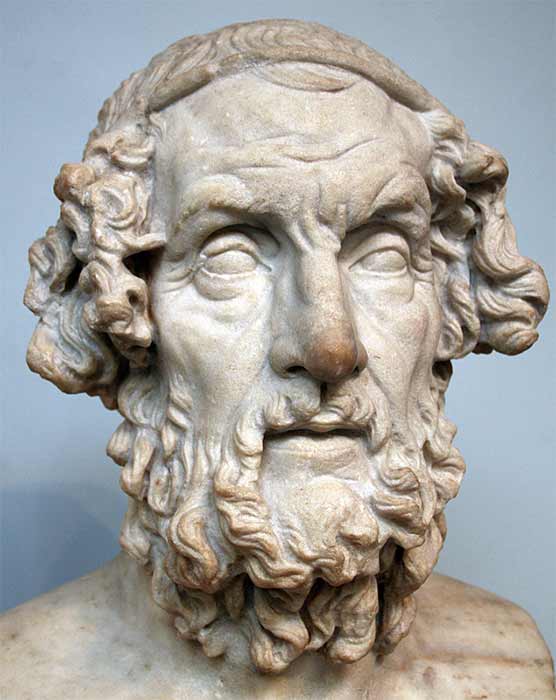
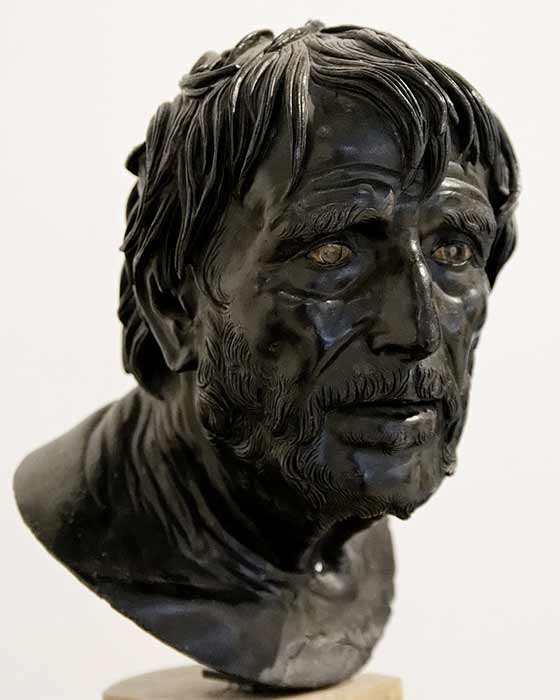
Roman bust of Homer (second century AD)(Public Domain) Representation of Hesoid (CC BY-SA 2.5)
Bards And Storytellers
Early Greek historians were primarily bards. Bards were unique professional storytellers, who compartmentalized and composed poetic songs of stories through the oral transference. The duty or art of the bard was to tell stories of various events, whether small or epic, as in the case of the Iliad or Odyssey. These bards would travel from town-to-town, entertaining people with primordial tales about the struggle between men and gods. The bard would train a younger person in the stories he was taught as a young man and thus the story lived on through generations of bards, for the bard was a walking history book seeking an audience interested in being entertained by the stories of yesteryear. The popularity of bards would slowly become obsolete, due to parchment. While bards eventually died out as being the most popular media brand to parchment, writers utilized this material and kept their voices alive by inking every jot and tittle.
The bards’ narratives could be copied and filed away only to be retrieved again for reading or research, putting the bard out of a job. However, it was some time before this effectively took place, for many historians in ancient Greece were bards, especially Homer and Hesiod, but historians like Herodotus and Thucydides were not bards in the traditional sense. They were able to retain the story, but wrote down the information using logic and reason without letting reason get in the way of experience. Herodotus and Thucydides in a sense, broke the bards back, even though Herodotus may not have written down his work, whereas Thucydides may have. Overall, without the bard, there was no historian. Luckily, there were those interested in reasoning with the bard’s stories to establish what was real and what not. When looking for a foundation to build from when dealing with Greek history, look no further than Homer.
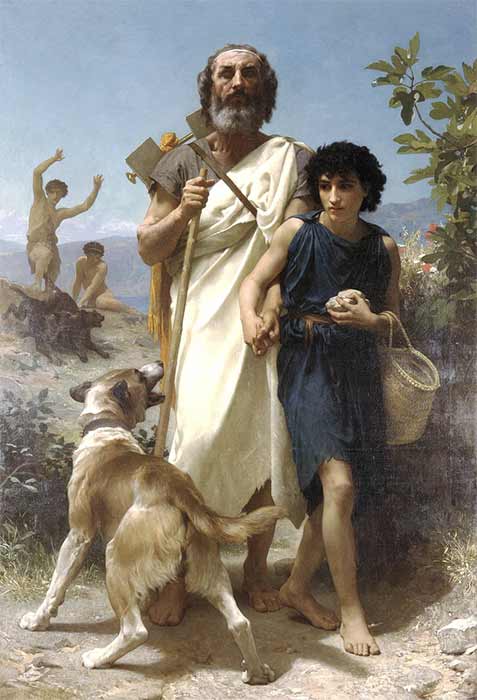
Homer and His Guide (1874) by William-Adolphe Bouguereau (Public Domain)





